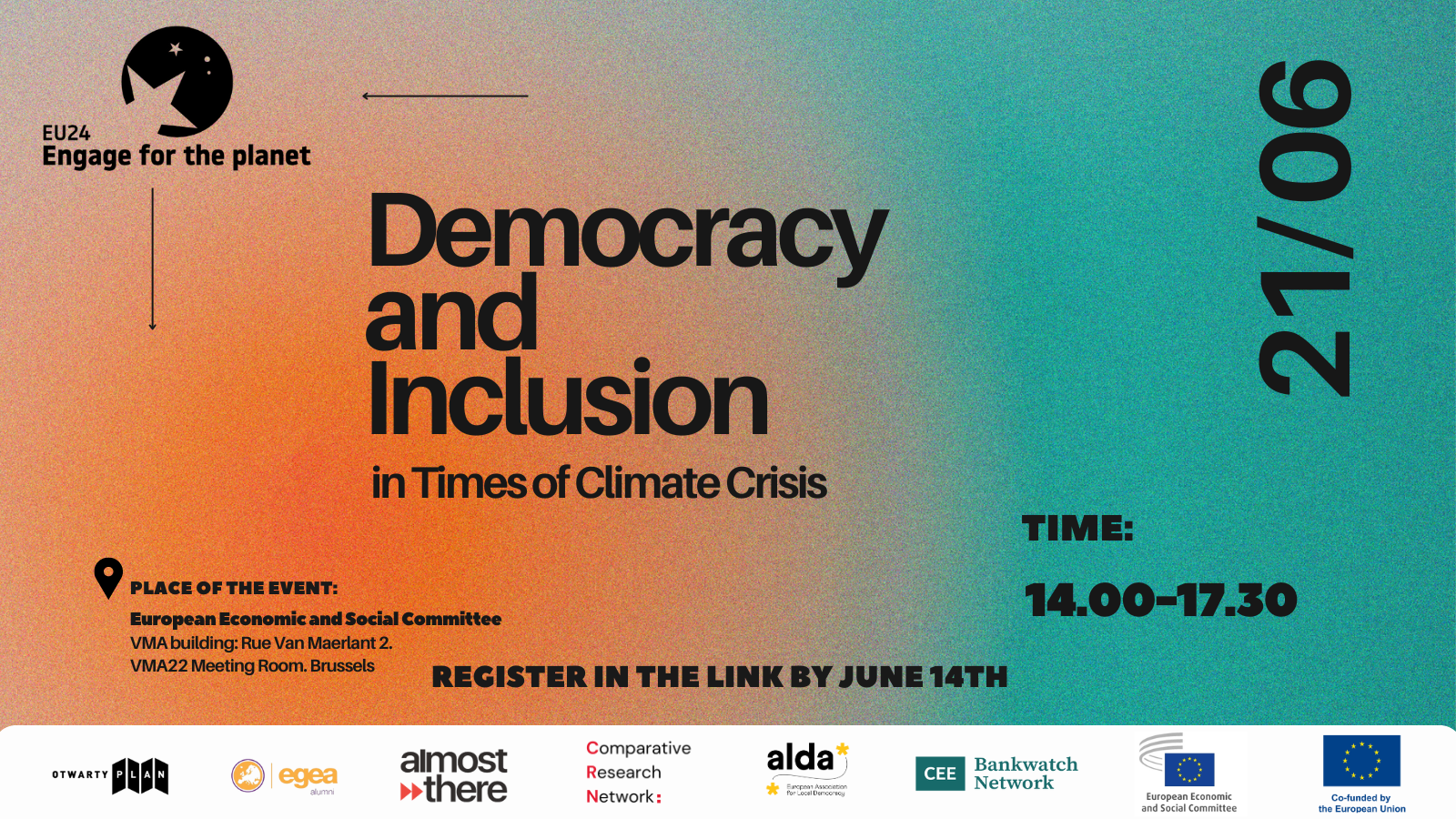PRESS RELEASE – On 21 June 2024, civil society organisations and climate defenders will meet at the “Democracy and Inclusion in Times of Climate Crisis” event at the European Economic and Social Committee (EESC), Rue Belliard 99/101, in Brussels.
Participants will debate on how to best answer the climate crisis from the perspective of marginalised voices. Partners of the EU24–Engage for the Planet project will present the main results of the “(Un)heard Voices” campaign.
The event is free and open to anyone, with special attention to people from marginalised backgrounds. This is the moment to have your voice heard on climate issues.
* * *
Through a series of compelling video interviews, “(Un)heard Voices” brought to light the perspectives and experiences of individuals underrepresented in political discourse. Migrants, women, young and senior people, members of the LGBTQ+ community, they advocate for equality and recognition. Each story is a testament to the rich tapestry of identities and struggles that define our continent in times of climate crisis.
“(Un)heard Voices” goes beyond mere storytelling. It’s a call to action, urging citizens to confront their own biases, expand their understanding of social issues, and actively engage with marginalised communities in the democratic process. By amplifying these voices, we want to foster empathy, solidarity, and meaningful change in the political landscape of Europe.
For Monika, a disabled woman from Poland, the biggest challenge is to be heard: “Disability, climate crisis and environmental problems are closely related to each other,” she argues. “Two of the most common reasons for disability are environmental issues and climate change. We are a vulnerable group, the first to experience the consequences of this crisis.”
That is why the right to vote becomes essential in ensuring that voices of all individuals, regardless of their background or circumstances, are heard and represented in the democratic process.
“Voting is simply a duty as well as a right,” claims Karim, a man with a migrant background from France. “Voting is a right acquired over time with great sacrifices and social struggles. Continuing to vote and having a say in political decisions and choices will remain, for me, the essential difference between being a citizen and being subjected to politics.”
As the European elections draw near, the urgency of addressing the climate crisis and amplifying the voices of marginalised communities has never been more pronounced. Against the backdrop of unprecedented environmental challenges, it is imperative to ensure that the concerns of all citizens, especially those from marginalised groups, are heard and addressed in the policymaking process.
The upcoming European elections present a crucial moment for fostering inclusivity and environmental justice in decision-making.
Recognising this, the EU24–Engage for the Planet consortium launched “(Un)heard Voices” to empower marginalised people and elevate climate concerns on the European agenda.
For more information on the “Democracy and Inclusion in Times of Climate Crisis” event of 21 June in Brussels (Belgium), visit the website by clicking on the right.
For more information about EU24 Engage for the Planet and its initiatives, please visit engage4theplanet.com and engage4theplanet.com/unheard-voices-campaign.
Context
The EU24 Engage for the Planet project aims at decreasing the democratic participation gap of young citizens, citizens of diverse backgrounds, mobile union citizens in a gender-balanced way, by showing them their voices matter. While the turnout in the last EU election was the highest in 25 years, citizens of diverse backgrounds and mobile union citizens remain underrepresented among active EU voters, as well as democratic engagement. Climate change is the biggest threat to humanity today and needs transnational and multinational solutions.
